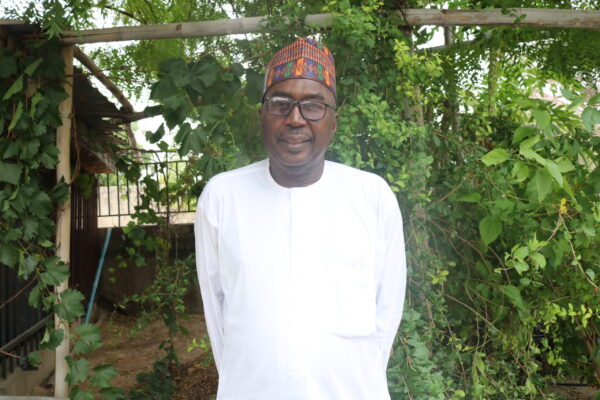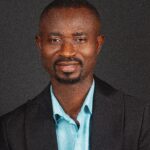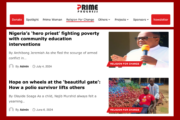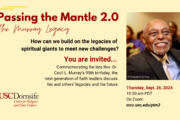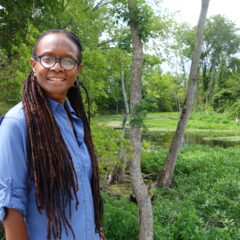This article was originally published in Religion Unplugged, with the support of CRCC’s global project on engaged spirituality.
MAIDUGURI, Nigeria— When Zannah Mustapha worked as a Shariah court lawyer in the mid-2000s, he drove around Maiduguri during school hours and saw hordes of kids holding plastic plates and begging for food and money. Mustapha felt sorry for the kids’ futures and wondered what he could do to help.
Each child had a unique story.
For example, one early morning in February 2014, a Muslim family of five had just finished praying when they heard gunshots from outside their home in Bama, a town in Nigeria’s northeast state of Borno.
Amid the gunshot sounds, loud crying voices, including from women and children, could be heard from neighboring homes. What the town had long feared had happened: It was a Boko Haram invasion.
Unfortunately, the family did not have enough time to escape.
“Three strangers came into our house with guns and pushed us outside,” said Mustapha Bukar, the second of three siblings and 9 years old at the time. “They told our parents to stay (outside) and told us to go (back inside).”
The gunmen shot and murdered Bukar’s mother and father.
Borno State once prided itself as the “Home of Peace” until radicalized Muslim Muhammed Yusuf founded Boko Haram in the early 2000s in Maiduguri, the state capital. From leading an anti-Western education campaign, the jihadist group soon started attacking civilians and destroying public facilities in an attempt to create an Islamic state out of Nigeria.
Since then, Boko Haram has directly killed over 35,000 people and displaced about 2 million in the northeast region. For part of 2014, the sect controlled nearly half of Borno’s 27 local government areas.
While some displaced people moved to neighboring Bauchi, Gombe and Taraba states, others crossed country borders to Cameroon, Niger and Chad. Thousands more headed to Maiduguri, including orphans whose parents Boko Haram had killed.
“Myself and my (siblings) saw people leaving Bama in confusion. Then we trekked from Bama to Konduga, 25 miles in one day. From Konduga, we met someone to transport us to Maiduguri (another 22 miles),” Bukar, now 17, recalled.
The three siblings connected with their uncle and grandmother in the city of over 1 million.
In February 2007, Mustapha quit his legal practice of 20 years and founded the Future Prowess Islamic Foundation, a primary school to provide free education exclusively for Muslim orphans in Maiduguri.
Zannah Musapha (center, in white) with some teachers and pupils of one of his primary schools in Maiduguri.
The school was a single building of just four classrooms, two teachers and 36 pioneering pupils. Following the mass exodus of displaced persons into the capital due to Boko Haram attacks, Maiduguri soon hosted thousands of displaced Muslim orphans amid near-zero access to education.
Severe hunger, destruction
The sect’s disruption of economic and agricultural activities has resulted in 4.4 million people suffering severe hunger in the northeast, where over 85% of people are farmers, according to data from the United Nations World Food Programme, an aid organization. At the same time, another 8.7 million face dangerous food insecurity. Consequently, for each of the 35,000 people killed directly, nine more, or 314,000 in total have died from hunger and disease.
While Nigerian soldiers have since 2017 reclaimed most areas previously under Boko Haram’s control, normal economic activities are yet to return in affected communities outside Maiduguri. And it would take about $6.7 billion to achieve short and medium-term recovery of incurred development deficits to prevent the death of an additional 1.1 million people from indirect causes like hunger and disease by 2030.
However, the education sector is perhaps where urgent action is needed the most. By 2015, Boko Haram had destroyed and forced the closure of over 2,412 primary and secondary schools, with 611 teachers killed and nearly 20,000 displaced.
In Borno, 1.8 million children are now out of school, a 67.8% uptick from 578,746 in 2008. The future remains uncertain with the insurgency still ongoing and recovery efforts slow.
‘An orphan is an orphan… why not take Christian orphans too?’
Seeing the numbers of displaced and orphaned children on the street continue to rise, Mustapha expanded his school by constructing 20 extra classrooms and admitting 300 more orphans. He partnered with the International Committee of the Red Cross to give each pupil a meal every school day.
When admission requests spiked again later, he built two additional community primary schools in separate locations and later a secondary school to absorb those graduating from the primary schools.
Eventually, he decided to open the doors of his schools to non-Muslims, too, without compelling them to convert to Islam in the Muslim-majority city.
“We felt, who is an orphan? An orphan is an orphan. … Why not take Christian orphans too?” he said, attributing his liberal mindset to his late father’s influence on him.
Alkali Mustapha, his father, was an Islamic clergyman who was open-minded enough to allow his six children to get both Western and Arabic education in the 1970s, when most Muslim Nigerian fathers forbade Western education for their children.
Mustapha and his team retooled their admission criteria for inclusivity and diversity.
“(Now) we have about four categories of students,” explained Suleman Aliyu, Mustapha’s coordinator of school administration. “First are the double orphans who lost both parents to insurgency, sickness or other causes. Second is single orphans who lost one of their parents. The third is the vulnerable … due to difficult circumstances. The fourth is (children with) missing parents … due to insurgency.”
Today, the four schools, sustained through donations and support from private individuals and local and international groups, have over 2,200 pupils and students — besides some 397 who have graduated since 2018 — 102 staff and 23 volunteer teachers.
Meanwhile, acting as a negotiator on behalf of the government, Mustapha helped secure the release of 103 of the 276 school girls Boko Haram abducted in Borno’s Chibok town in 2014, a feat that got him the trust of both the government and the sect. This trust, Mustapha believes, is partly why the insurgents never attacked his schools even at the peak of the crisis when they were blowing up other schools.
“Baba,” which means father, is what Mustapha’s students call him. They say he is the father they see. And one of those calling him Baba is Bukar.
While in Maiduguri, Bukar’s grandmother heard about Mustapha’s school and was able to get her grandson enrolled.
“I started my primary school in 2014 and finished in 2019,” said Bukar, who is now in his junior secondary class. “I (would have) never been to school if not for Future Prowess. When I started, I didn’t know how to speak English, read or write. But now, I’m trying my best.” He hopes to become a doctor and a humanitarian someday.
“There are a lot of people that do not have money to take their children to the hospital,” he said. “If I become a doctor, I want to build a big hospital for the orphans and vulnerable children.”
Nothing better than heaven
Mustapha worries that he is unable to help all his students further their education up to the university level because the cost is beyond what his foundation can shoulder. He said some private individuals have promised to train a few dozen in the university, but most might never have that chance.
He plans to set up skills acquisition classes for his secondary school students to help them learn to live independently after graduation. Already, the foundation trains some of the older students and recent graduates in livelihood skills like bead making, soap production, tailoring, fishing, and chicken and goat farming.
However, Mustapha has no record of what those who graduated before 2020 are doing with their lives. He just believes that with their secondary education, they are fairly equipped to make independent decisions for their future.
Still, he is not giving up on his dream to see each child attain education up to the university level. He has plans to eventually establish a university too.

Mustapha’s effort has fetched him several global awards. And yet, he is also the father of 10 children who spends his spare time gardening and tending his small herd of sheep and goats. Mustapha said his inner motivation and sustaining power come from his faith’s teachings.
“There is a saying from the Prophet Muhammad: ‘I and a person who gives or takes care of orphans will be like (one) in paradise (heaven),’” he said. ”This is the fundamental thing. There is nothing I do, that I hold, that I can get in this world better than heaven.”
Click here to read the story on Religion Unplugged
Emmanuel Innocent Eteng is a journalist fellow with the Spiritual Exemplars Project.
